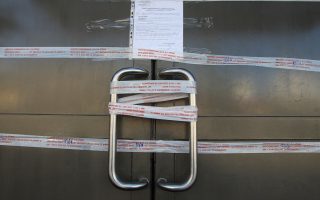Taxes hit tourism competitiveness

The increase in the tax burden over the last year has led to Greece’s tourism sector losing around 10 percent of its competitiveness, which is roughly half of the ground it had gained since the start of the country’s economic crisis, according to the first part of a new study by the Association of Greek Tourism Enterprises (SETE).
SETE’s research found that Greece has higher taxation, and therefore the greatest disincentives for the growth of tourism, than the countries it is competing with, such as Cyprus, Croatia, Turkey and Spain. The researchers add that apart from the level of taxes, the lack of tax stability also deters investors.
SETE says that although the level of visitor satisfaction at Greek hotels tends to be higher than in competing countries, there are problems with regional airports and ports and matters that are the competence of local authorities, such as garbage collection and protection of the environment.
The tourism association forecasts that Greece could earn 18.5 billion euros in revenues from tourism in 2021, compared to the 13.7 billion it raked in last year. The sector is also expected to see investment rise to 1 billion euros five years from now, compared to around 200 million euros in 2015.





